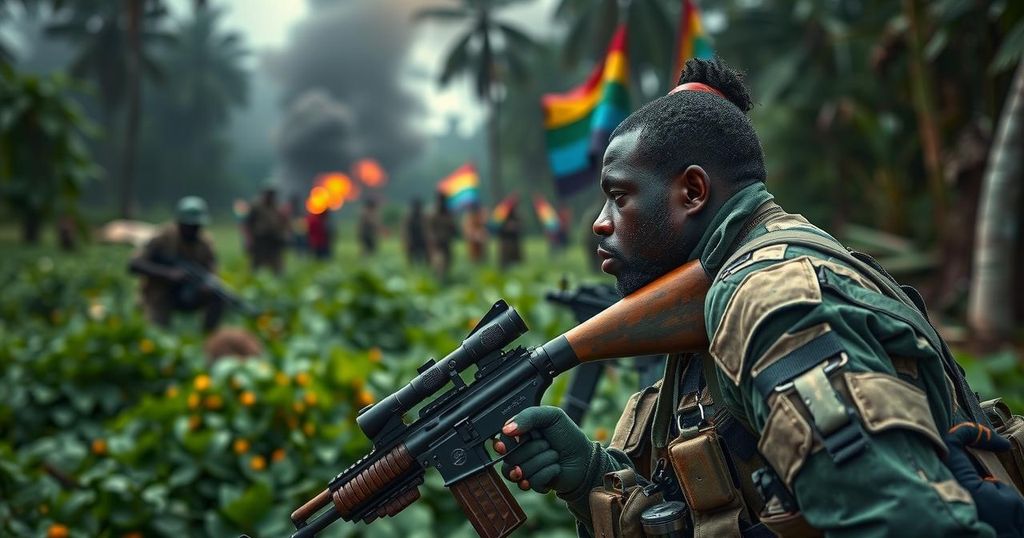The DRC accuses Rwanda of exploiting a ceasefire to gain control over territories in the eastern region, as the M23 rebel group continues its offensive despite an agreed truce, creating a humanitarian crisis and escalating tensions with local militias supporting the Congolese army.
The Democratic Republic of Congo (DRC) has accused Rwanda of exploiting a ceasefire agreement to expand territorial control amidst ongoing conflicts in the eastern region. Local sources have indicated that the Rwandan-backed M23 rebel group has intensified its military operations despite a truce established in early August, leading to significant territorial gains and exacerbating an already dire humanitarian situation. The M23, predominantly made up of ethnic Tutsis, has been active since late 2021, displacing thousands and causing widespread suffering. As fighting escalates in North Kivu province, the M23 seeks to capture the strategically important town of Pinga. The Congolese military maintains that it is adhering to the truce, and in a statement on Thursday, expressed concerns that Rwanda is “taking advantage” of the ceasefire to establish a stronger foothold in certain areas. Although both the Rwandan and Congolese armed forces have largely upheld the ceasefire, several armed groups linked to each military have consistently violated the terms. Recent skirmishes have revealed the precariousness of the situation, with the M23 successfully capturing the contested town of Kalembe on October 23 after engaging in conflict with the Wazalendo militia, which supports the Congolese army. The Wazalendo forces are reportedly collaborating with the Congolese military to counter M23 advances near Pinga, where tensions remain high and reinforcements have been dispatched to the area. Authorities from Angola, which mediated the ceasefire agreement, have denounced the M23’s actions as a “flagrant violation” of the truce, a sentiment echoed by France which criticized the ongoing offensives by the rebel group. The eastern DRC, rich in minerals yet fraught with instability, has been plagued by violence and the rivalries of numerous rebel factions for over three decades.
For several decades, the eastern region of the Democratic Republic of Congo has experienced persistent conflict driven by an array of rebel groups, often supported by foreign nations, notably Rwanda. The roots of this turmoil are complex, involving ethnic tensions, competition over vast mineral resources, and historical grievances related to past conflicts in the Great Lakes region. The M23 rebel group, primarily composed of ethnic Tutsis, has claimed territory in the east since its resurgence in late 2021. Amidst international diplomatic efforts to restore peace, ceasefire agreements have been repeatedly tested by violent escalations, revealing a volatile landscape fraught with challenges to stability and humanitarian security.
The accusations from the Democratic Republic of Congo against Rwanda highlight the fragile nature of the current ceasefire as the M23 rebel group continues to make advances in eastern DRC. The situation remains unpredictable, with military engagements suggesting that both the Congolese and Rwandan forces, despite adherence to the ceasefire terms, face significant challenges from various armed groups. The ongoing violence raises serious concerns about the humanitarian impact and stability in the region, calling into question the effectiveness of international mediation efforts and the sustainability of peace in a historically conflict-ridden area.
Original Source: www.barrons.com






